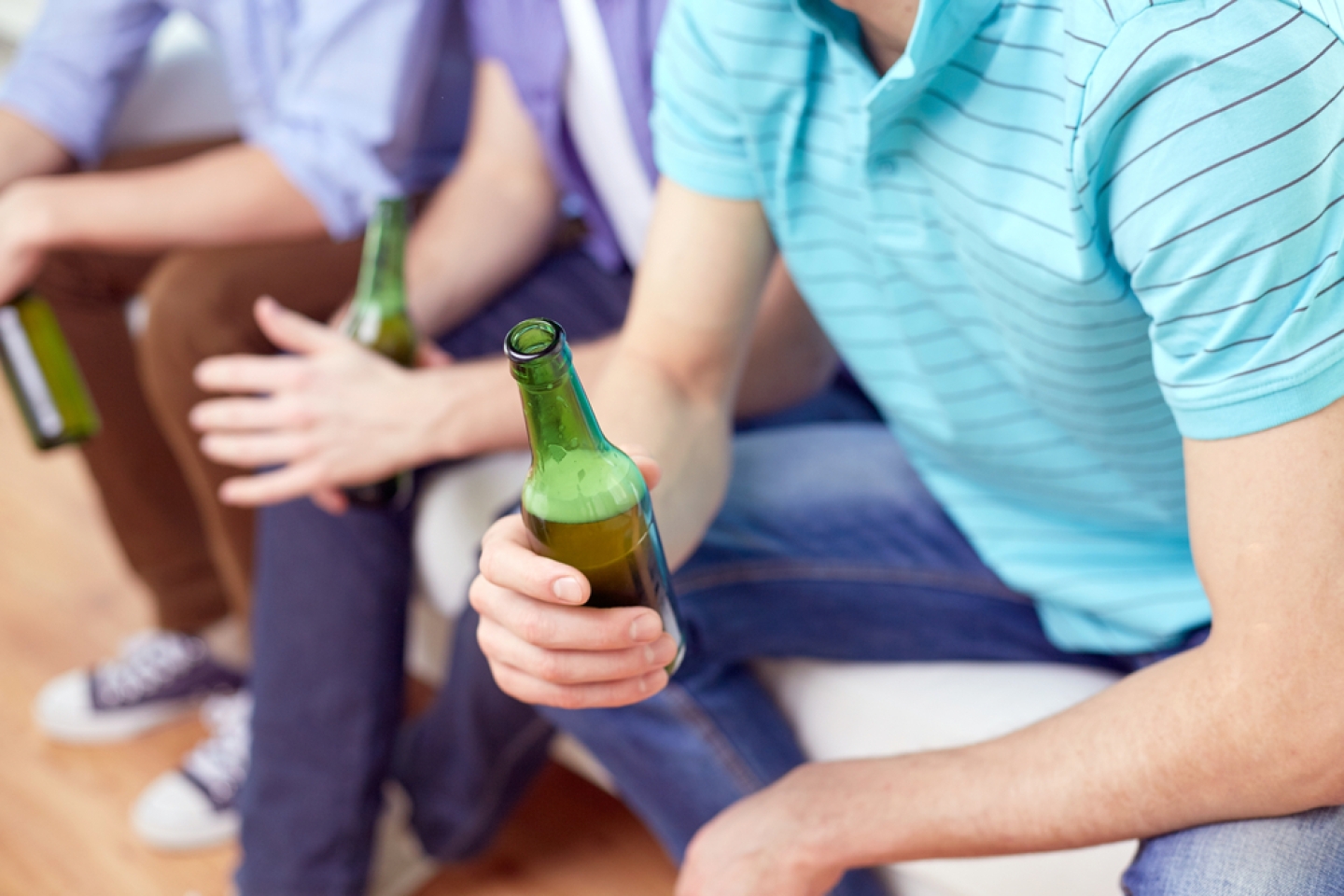Alcohol and Binge Drinking Among College-Age Students

"I think when people think about alcohol use disorder or alcohol addiction, they often imagine the middle-aged person drinking every day, losing out on a lot of the benefits of life,” explained Jonathan Avery, MD, the Vice Chair for Addiction Psychiatry. “But really, it's binge drinking that is going to get most people in trouble in this life … we know high school and college kids binge drink a lot.”
Here, you can read Dr. Avery’s expert advice about college-age students and binge drinking that he recently shared on the Weill Cornell Medicine Kids Health Cast podcast.
What is binge drinking?
Binge drinking is defined as two to four drinks per day for women and three to five drinks in a day for men. Binge drinking leads to about 40,000 deaths per year, as well as increased incidents of sexual and other types of assault. “It’s a serious problem that we’re paying more attention to,” affirmed Dr. Avery.
Social media influences
Today’s high school- and college-age students are navigating many social pressures, including binge drinking trends on social media. During this interview, Dr. Avery shared his perspective on the BORG (blackout rage gallon) trend.
“It’s really been normalized, popularized in ways that’s concerning,” he said. “Basically, it’s when kids mix alcohol with water or even hangover remedies, like Pedialyte, in a gallon container. By mixing it all together, they’re trying to avoid — in a smart way — some of the downfalls of drinking too much. They’re trying to avoid dehydration … so, on the surface, it sounds like it might be a safe way to consume alcohol.”
Yet, Dr. Avery confirmed, this is problematic. “This trend gives permission for folks to drink a ton of alcohol. They can contain as many as 15 drinks.” This can lead to alcohol poisoning or liver damage.
Dr. Avery continued that it can also cause, “psychiatric consequences from poor sleep and a vicious hangover. And so, it’s not as benign and fun as it might seem. [However] as these trends come in rapidly on social media, I've seen they go pretty quickly because kids are smart.”
Are non-alcoholic drinks helpful?
Dr. Avery shared that non-alcoholic drinks provide a helpful alternative to high school- and college-age students, as well as adults, especially in social settings.
However, asserted Dr. Avery, “what’s more important than what they’re drinking is how to say no, how to stay safe and how to avoid being in a state you’d rather not be in. Learning to just say no and be clear about what your boundaries are is as important as anything else.”
How can parents and caregivers help young adults navigate peer pressure?
Dr. Avery strongly recommended open communication between young adults and their parents and caregivers. This includes talking — early and often — about the risks of alcohol, family history of addition and how to set boundaries with peers.
The central goal is to establish and maintain trust for safe, open conversations. “All this problematic drinking and high-risk behavior is happening at a time where the kid is looking to separate from their parents and find their own identity out in the world, understand what makes them tick and how they can be successful in this life and find what they're looking for,” explained Dr. Avery.
“And so for parents, it's trying to maintain that connection as they grow up and separate, while at the same time fostering their independence, and that dance is really hard to do,” he detailed. “For parents, they shouldn't be going around telling the kids to never drink because then it's an opportunity to rebel and it's an opportunity to hide the drinking, right? In the secrets is really where addiction survives.”
How else can parents and caregivers support their children?
Dr. Avery affirmed parents and caregivers that navigating this issue with their children can be very difficult and anxiety-provoking. “Thinking about my own kids entering college in a couple years, it frightens me,” he said. “It’s not easy for us to deal with as parents. But I say we do our best early on to just keep that relationship going, keep the communication open and non-judgmental and hope that, if they're struggling, that they'll lean on us.”
Parents and caregivers can help their children by speaking openly and compassionately about the shame and stigma associated with mental health conditions, substance use and addiction. In addition, it’s helpful to discuss the many treatments available for mental health and addiction: in-person care, programs at their school, telehealth options and medications to help curb drinking.
“It’s important to highlight that we care,” concluded Dr. Avery, “but also to highlight other ways for them to seek help if they find themselves in trouble.”
Be sure to listen to the full podcast featuring Dr. Avery and learn more about the expert, compassionate care at the Weill Cornell Medicine Program for Substance Use and Stigma of Addiction.
